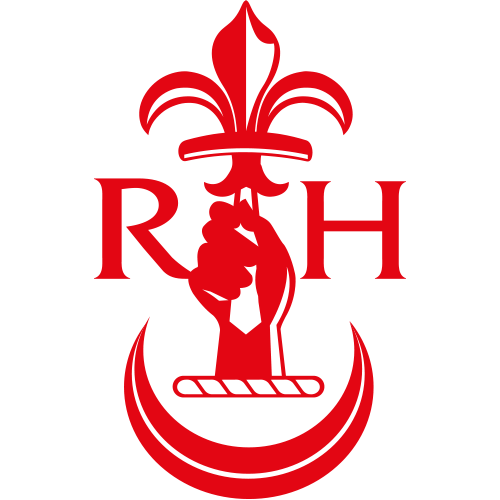Religious Education
Staff
Head of Department
Mrs M Wright
Subject Teachers
Miss R Gamble
Aims
Given the importance and influence of religion in general and of Christianity in particular, both in our history and in the contemporary world, a broad and balanced education for our children requires a place for Religious Studies in the curriculum. Pupils’ understanding of history, literature, music, art, and the cultural and political diversity of our modern world is enhanced by an academic study of religion, based on sound educational principles. Also, in our increasingly secular, materialistic and technological society, Religious Studies allows pupils to consider religious and spiritual perspectives on life.
The Religious Studies department seeks to further the general aims of the school and has a particular role to play in the whole school’s aim ‘to foster a respect for spiritual and moral values and a tolerance towards other races, religions and ways of life’. In addition to this, the department aims:
to help pupils in their quest for meaning and purpose by promoting an understanding and appreciation of the spiritual dimension of humanity and in particular of its religious beliefs and practices
to assist pupils to know about, to understand and to be able to evaluate religious insights, experiences, concepts, beliefs and practices so that they can make a thoughtful response
to examine and reflect upon contemporary moral questions and to note the influence of Christianity on personal moral behaviour, thus enabling pupils to become responsible, rational and independent decision makers
to develop a deeper awareness and a more sensitive understanding of the contribution of religion in general and of Christianity in particular to both the religious and cultural dimensions of our society
to contribute, along with the other departments, to the total development of pupils - spiritually, morally and socially
Key Stage 3
In Year 8 pupils study identity, self-image, friendship, the Bible and Old Testament characters.
This is followed in Year 9 by a study of the life and teachings of Jesus Christ.
Year 10 pupils examine Christianity, Hinduism and morality and critically investigate religious beliefs.
GCSE
At Regent House, pupils follow either CCEA GCSE short or full course. The short course covers:
An Introduction to Christian Ethics (personal and family issues, matters of life and death, bioethics, prejudice and discrimination, poverty, war and peace).
In addition, those following the full course GCSE will study:
An Introduction to the Philosophy of Religion (the existence and nature of God, creation and science, the problem of evil and suffering, experiencing God, life after death).
A Level
Pupils study the CCEA GCE Religious Studies course.
In Year 13 at AS Level, pupils follow an Introduction to the Acts of the Apostles (the earliest history of the Christian Church) and the Origins and Development of the Early Christian Church to AD 325.
In Year 14 at A2 Level, pupils follow Themes in Selected Letters of Paul (1 Corinthians, Galatians, Ephesians) and Themes in the Early Church and the Church Today.
No religious faith is required or assumed in the delivery of the Religious Studies curriculum and the completion of the courses outlined above..
Careers
As with other A Level courses, Religious Studies is fully recognized by universities and is relevant for courses in, for example, Theology, Philosophy, Psychology, Sociology, Ancient History, Classical Civilisations, Anthropology and Archaeology.
Religious Studies is especially useful for those considering Christian ministry or mission, school teaching or any of the caring professions. The reasoning and debating skills developed in the philosophical side of the subject are particularly relevant for a legal career.
